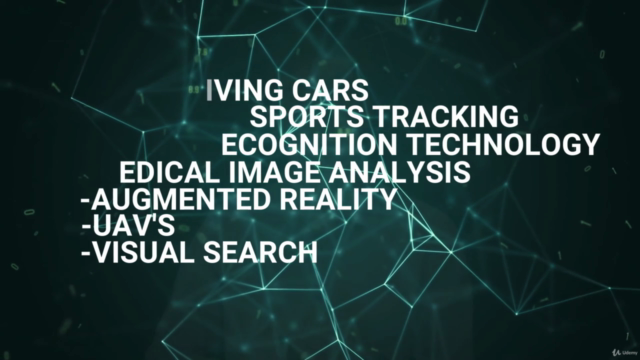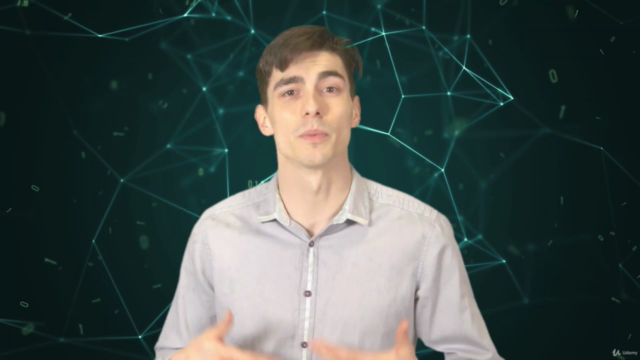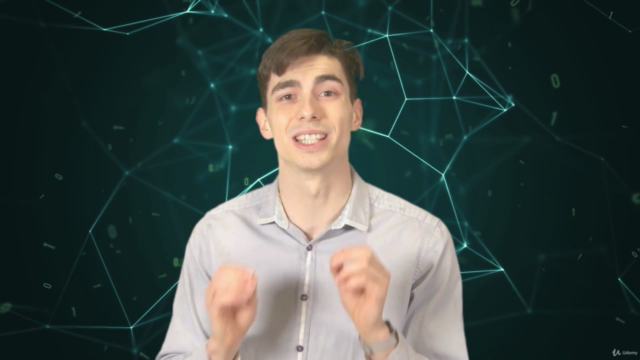Computer Vision in Python for Beginners (Theory & Projects)

Why take this course?
🎓 Course Overview:
The course you're considering is designed to provide a comprehensive understanding of Computer Vision, a field at the intersection of artificial intelligence, machine learning, and image processing. The curriculum is structured to cover both the theoretical foundations and practical applications of computer vision, ensuring that by the end of the course, you will be equipped with the skills to tackle real-world problems using computer vision techniques.
Here's a breakdown of what the course includes:
Week 1: Introduction to Computer Vision
- Understanding the scope and applications of computer vision.
- Overview of image processing as a precursor to computer vision tasks.
Week 2: Image Processing Fundamentals
- Exploring various filters for image enhancement.
- Techniques for noise reduction, edge detection, and more.
Week 3: Geometric Transformations
- Learning about affine and perspective transforms.
- Understanding the importance of these transformations in image correction and analysis.
Week 4: Image Features and Object Recognition
- Dive into feature extraction methods such as SIFT, SURF, and ORB.
- Study the principles of object recognition using local and global features.
Week 5: Machine Learning for Computer Vision
- Introduction to machine learning models used in image analysis.
- Understanding convolutional neural networks (CNNs) for image classification.
Week 6: Deep Learning in Computer Vision
- Exploring architectures like RNNs, LSTMs, and Transformers for temporal data processing.
- Case study on YOLO (You Only Look Once), a state-of-the-art object detection system.
Week 7: 3D Reconstruction from Images
- Learning about stereo vision and multiple camera setups.
- Understanding triangulation and structure computation for 3D reconstruction.
Week 8: Motion Analysis and Optical Flow
- Studying the principles of motion analysis, including optical flow techniques.
- Applications such as Mocap and sports analytics.
Week 9: Real-time Computer Vision Applications
- Implementing change detection in CCTV cameras and smart DVR systems.
- Ensuring low latency for real-time processing.
Week 10: Project Work and Applications
- Applying learned concepts to implement a hands-on project.
- Exploring the use of computer vision for various applications such as facial recognition, gesture recognition, and more.
Week 11: Computer Vision for 3D Animation
- Understanding the process of capturing motion data.
- Techniques for creating realistic 3D animations using computer vision.
Week 12: Real-world Projects and Applications
- Working on a capstone project that integrates various aspects of computer vision learned throughout the course.
- Discussing the ethical implications and challenges in real-world deployments.
Throughout the course, you will learn to relate theoretical concepts with practical problem-solving, implement projects from scratch, and understand both the limitations and potential of computer vision technologies. The course is suitable for beginners as well as those looking to enhance their existing knowledge of computer vision with real-world data and Python implementation.
By completing this course, you will not only master the technical skills required in the field of computer vision but also be able to apply these skills to create intelligent systems capable of visual understanding. Whether you're a data scientist, machine learning expert, or simply an enthusiast looking to explore the vast world of AI and vision, this course offers a structured path to becoming proficient in computer vision.
🖥️ Key Takeaways:
- A solid grasp of both the theoretical and practical aspects of computer vision.
- Implementation skills for a range of projects, from simple image processing tasks to complex deep learning applications.
- Real-world applications knowledge, including change detection in CCTV cameras and smart DVR systems.
- A strong foundation in 3D reconstruction techniques like SfM.
- Familiarity with the latest advancements in object detection using YOLO and other deep learning models.
🎓 Who Should Take This Course:
- Absolute beginners in computer vision.
- Individuals interested in smart solutions and real-time data processing.
- Data scientists, machine learning experts, and anyone passionate about leveraging AI for image analysis.
- Those who wish to learn and apply machine learning models specifically designed for image processing tasks.
- Professionals looking to integrate computer vision into their existing projects or workflows.
🌟 Conclusion: Embark on a journey to master Computer Vision with this comprehensive course that combines the latest research, real-world applications, and hands-on project work. Whether you're aiming to advance your career in AI, build innovative solutions, or simply satisfy your curiosity about how machines understand visual data, this course is designed to help you achieve your goals. Sign up today and join the ranks of computer vision experts!
Course Gallery




Loading charts...